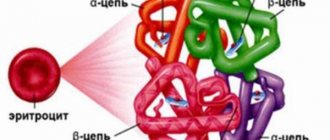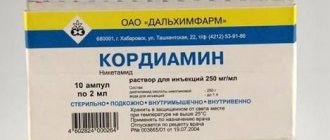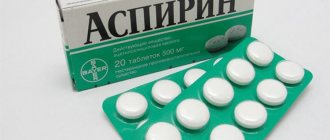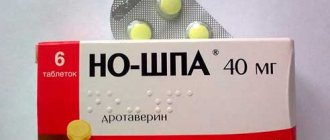Home » Articles from an expert » Drugs
People suffering from hypertension do not always pay attention to whether Paracetamol and blood pressure are combined with each other. They take antipyretics without the doctor's knowledge if they have flu or cold symptoms.
The antipyretic Paracetamol is one of the main components of many modern drugs; those with high blood pressure should take it especially carefully.
Description
Paracetamol (Paraacetylaminophenol) has a clear ability to lower body temperature. It also has an analgesic effect. It is also used to relieve inflammation.
The drug is absorbed in the intestine quite quickly. After a short time it is already present in all tissues. Metabolized in the liver. It is removed from the body by the kidneys. The maximum concentration is achieved half an hour after administration. The elevated body temperature will begin to gradually decrease 1.5-2 hours after consumption. The half-life is 2-4 hours.
If you take Paracetamol for a long time in large quantities, liver damage cannot be ruled out.
Indications:
- headache;
- neuralgia;
- algodismenorrhea;
- toothache;
- arthralgia;
- toothache;
- joint discomfort;
- myalgia;
- heat;
- body aches;
- general weakness.
Benefits of use
Paracetamol is usually used during ARVI and influenza. Its antipyretic property is mild and close to the natural decrease in readings on a thermometer. The compound can affect the central nervous system and is localized in the hypothalamus. This is due to the impact on thermoregulation processes. The human defense system is activated. After all, now you don’t need to waste energy on eliminating fever.
Paracetamol is prescribed to children, including. The action is selective. Due to its intake in small quantities, methemoglobin is formed and this causes harmful effects. But Paraacetylaminophenol has no effect on platelets. It is also not able to influence the enzymes cyclooxygenase-1 and 2. This is the big advantage of the drug over other antipyretic tablets often used for acute respiratory viral infections.
Basic principles of treatment
Paraacetylaminophenol is not an antibiotic at all. It also does not apply to vitamins. This is a symptomatic remedy. It is necessary to alleviate symptoms during an acute viral infection. The compound does not fight the disease itself.
You should always strictly follow the dosage recommended by your doctor. It is used for acute forms of ARVI, accompanied by elevated temperature.
You cannot combine the intake of alcohol-containing substances with Paracetamol.
Indications for use and mechanism of action of the drug
Paracetamol is available in tablet form. They contain 200 or 500 mg of the active substance of the same name, which determines its therapeutic effect. And it is also included in syrup and rectal suppositories for children. The drug produces moderate anti-inflammatory, as well as antipyretic and analgesic effects. Its components are absorbed in the small intestine and excreted by the kidneys, and their half-life can range from 2 to 4 hours.
Paracetamol is found in tablets of the same name, as well as a large number of analogues. This component combines well with other anti-inflammatory drugs, but can also be used separately. It is recommended for the following pathologies:
- headaches and toothaches of any origin, including chronic migraines;
- pain in women;
- back and joint pain, various manifestations of myalgia;
- colds and flu as part of complex therapy - to relieve aches and other additional symptoms.
Paracetamol increases blood pressure or can lower it
In case of hypertension, especially the second and third degrees, it is important to carefully select medications to get rid of colds. Paracetamol is not prescribed to normalize blood pressure. It is used for completely different purposes.
For a hypertensive patient, taking Paraacetylaminophenol is not at all harmless. The drug affects blood pressure and increases it even more. Therefore, the product should be used with caution, only in extreme cases, to avoid deterioration of well-being. Paracetamol is harmful for people who have had a stroke or heart attack.
Paraacetylaminophenol in powder, which easily dissolves and acts quickly, is even more harmful for hypertensive patients compared to conventional tablets. The drugs can significantly increase blood pressure. The harmful effects of the drug may increase if taken together with certain antibiotics, as well as antiepileptic drugs.
It is unlikely that you will be able to find information in the instructions for Paracetamol about how the medication will manifest itself if the patient experiences surges in blood pressure.
The well-known drug Paraacetylaminophenol helps well with headaches, and similar phenomena are not excluded with hypertension. The remedy is not capable of lowering blood pressure, therefore, the main cause of the ailment will not be eliminated. Paracetamol will only relieve the harmful symptoms of migraine and your health will improve.
Doctors do not prescribe Paracetamol to patients in order to lower blood pressure. Therefore, it will not help if the pressure is high. You should not drink it to reduce your indicators.
If the patient is allergic to Paraacetylaminophenol, then if you have high blood pressure, you should not take it. The remedy itself serves to relieve pain and also reduce temperature.
If a person suffers from low blood pressure, that is, he is hypotensive, then he needs to rule out an allergy to Paracetamol. In its absence, tablets can be taken to get rid of headaches and fever.
The effects of Paracetamol can be studied by starting with small doses. If no negative reactions follow, then there are no special contraindications for taking it. Doctors prescribe other medications for hypotensive patients to raise their blood pressure.
Doctors consider Paracetamol useless for stabilizing blood pressure. Therefore, if your levels are low, you should not take a drug to increase them. Paraacetylaminophenol is also not used to get rid of hypertension. The medicine can increase blood pressure, but in principle, this will not be significant. In advanced cardiovascular diseases, this can be dangerous. As for hypotensive patients, they should not worry.
Use for hypertension
When using Paracetamol, there is often a slight change in blood pressure. This is a side effect of taking the medicine.
It doesn't last long. As is known, this phenomenon does not have a significant effect on the patient’s body.
As you know, for people suffering from hypertension, taking medication is not harmless. It should be used only in extreme cases: if the desired effect is more important than the possible complications. If Paracetamol is taken in soluble form, there is a risk of myocardial infarction or stroke. This is due to the high salt content in its composition.
The use of this particular form of medication by people with high blood pressure can lead to an increase in its levels by another order of magnitude. Any unbearable pain in one or another organ can provoke an increase in blood pressure. If you take this pill, it will disappear instantly.
Paracetamol syrup
It turns out that in some cases the drug lowers blood pressure. This is precisely one of the most positive aspects.
But, despite this, we should not forget that there are a large number of other, safer antipyretic, analgesic and antispasmodic drugs. Moreover, they will not bring any harm to hypertensive patients. It is considered a symptomatic, non-steroidal, non-hormonal agent.
Of course, Paracetamol cannot eliminate the cause of the disease, and it also has some undesirable side effects from taking it:
- severe pain in the abdominal area;
- the toxins contained in the composition negatively affect the patient’s liver;
- provokes the appearance of allergic reactions, itching, and swelling;
- causes anemia, thrombocytopenia, and also affects the increase in the concentration of methemoglobin in the blood serum;
- has an undesirable toxic effect on the kidneys.
When using Paracetamol simultaneously with antibiotics, antiepileptic drugs, sleeping pills and alcohol, the toxic effect on the liver increases significantly.
Paracetamol should be taken orally after a fairly heavy breakfast, lunch or dinner. You should take the tablets with a sufficient amount of purified water. It is not recommended to take it for more than three days in a row.
The medication is available in several popular forms:
- pills;
- rectal suppositories;
- syrup.
Dosages
Pills
Adults can take 1.5 g of Paracetamol at a time - this is the maximum allowable dose. As a rule, the medication is taken several times a day, usually 3-4 in an amount of 0.35-0.5 g. The daily dosage should not exceed 3-4 g of the active substance. According to the instructions, you should take the drug after meals. You need to take it with water; you should not use any drinks.
Rectal suppositories
Dosages are similar to those used for tablets. It is necessary to count the number of grams of the active compound and not exceed the permissible limit.
Reviews
Reviews about Paracetamol are often positive. The drug has a minimum of contraindications. One of its breakdown products is capable of converting hemoglobin into methemoglobin, which is what causes toxicity. But this is only 25%.
“I have always had low blood pressure and this is the norm for me - 90/60 or 100/60. I once got sick with a bad cold, but not the flu, as the temperature is higher when it is diagnosed. I bought tablets at the pharmacy, there are 4 of them in a package. This is first aid for severe cough, runny nose, chills. The dosage of Paracetamol in them is increased (these tablets subsequently disappeared from pharmacy shelves). But it was possible to be cured only by taking this package. I don’t remember the name of the drug, I can’t say anything about it. The next time I had a cold, the doctor prescribed Paracetamol, 1 pill 3 rubles. per day plus some other tablets like Mucaltin. I was cured and was surprised because I thought that it was practically impossible to cure a severe ARVI with Paracetamol alone.”
Olga, 32 years old
“I take Paracetamol, not often, but periodically, when I have a headache. The unpleasant symptoms go away. One day my neck really hurt and it was difficult to turn it. I started taking the drug Fanigan and after a few days the pain stopped.”
Evgeniya, 40 years old
“I was very worried about the pain between my shoulder blades. It’s unclear where it came from at one point, it caught a cold in the muscle or it was pulled through by a draft. Fanigan, which contains Paracetamol, helped a lot. There was a long period when the heel spur was very bothersome. Only Fanigan saved herself. It relieved the pain significantly. I couldn’t do it without him.”
Irina, 28 years old
Preparations with paracetamol
Combination drugs containing paracetamol have a pronounced antipyretic and analgesic effect. Moreover, their anti-inflammatory properties are higher than those of pure paracetamol. Based on these properties, such affordable drugs as Citramon and Farmadol are widely popular.
If taking these drugs for hypotension has a beneficial effect on the body, then high blood pressure or hypertension is an absolute contraindication to taking medications with caffeine. The drugs may cause a short-term increase in blood pressure. If this is not dangerous in case of hypotension, then in case of hypertension there is a possible risk of increased negative impact on target organs.
Thus, in case of hypertension, it is recommended to consult with a doctor about the possibility of taking any antipyretic and analgesic drug, but not to self-medicate.
In order not to confuse the names of drugs that are dangerous for hypertensive patients, it is recommended to always look at the composition. If it contains only paracetamol, the medicine is not dangerous for high blood pressure. If, in addition to paracetamol, the composition contains caffeine, aspirin (acetylsalicylic acid) or other components, it is necessary to study the contraindications, and it is better to ask a specialist about the possibility of treatment with such a drug.
Analogs
Each body is individual, therefore, Paracetamol acts differently on people. It happens that it makes sense to choose an analogue of the drug and use it:
- Aspirin;
- Diclofenac;
- Meloxicam;
- Nimesulide;
- Ibuprofen.
There are other analogues of Paracetamol. It is better for a doctor to select the right remedy.
Side effects and contraindications
Contraindications include:
- renal failure;
- allergy to the drug;
- liver diseases;
- pregnancy;
- breastfeeding a child;
- deficiency of glucose-6-phosphate dehydrogenase;
- age up to 6 years.
When using Paracetamol, undesirable reactions are possible:
- liver dysfunction if the dosage per day exceeds 4000 mg and is used for a long time;
- the occurrence of allergic manifestations: skin rash, angioedema;
- aplastic anemia;
- vasculitis;
- papillary necrosis;
- renal colic;
- dyspnea;
- agranulocytosis.
Other disorders of the liver, excretory and circulatory systems, digestion, heart and nerves are also possible.
Paracetamol has a minimum of adverse reactions. There are no serious contraindications to its use. This is what determines the prevalence of the drug. It is not prohibited during lactation, since it is not excreted in breast milk, promotes recovery, and to treat some types of colds it is enough to take only it. It has a shelf life of 2-3 years. The product can be safely used by people with low blood pressure. With high blood pressure, it is better to be careful. But still, the drug is capable of increasing blood pressure to a small extent.
[adsp-pro-1] [adsp-pro-2]
Hypertension











